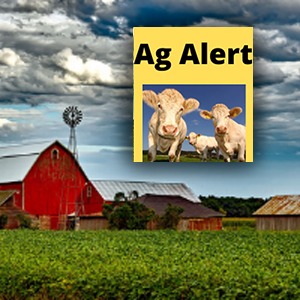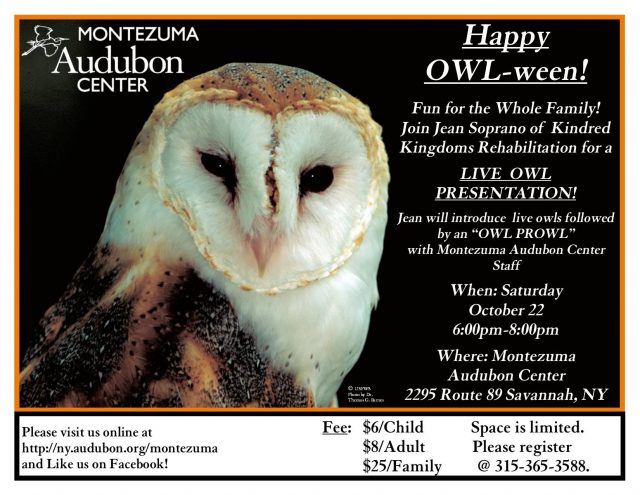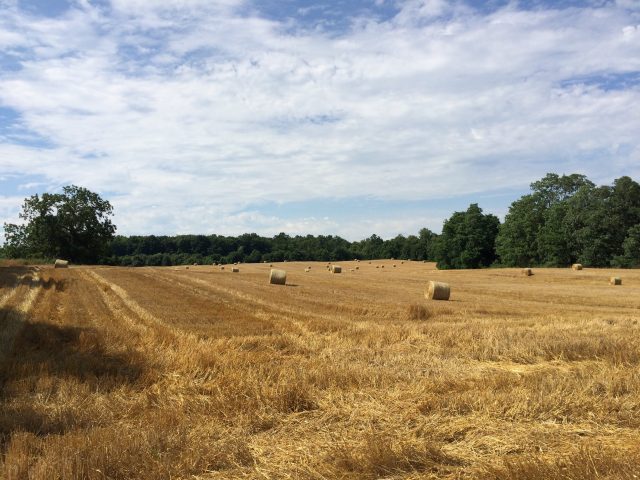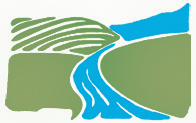The District’s next Electronic Recycling Event will be on Wednesday October 4th and Thursday October 5th for Wayne County Residents. Registration is required. Click here to read more and to register!
The New York State Department of Environmental Conservation (DEC) is holding a series of regional workgroup meetings to engage with the public about New York’s Great Lakes Action Agenda 2023 (GLAA) (PDF). The workgroups will assist in the implementation of the action plan to guide restoration and conservation and foster sustainable, resilient communities across New York’s Great Lakes region.
Announced in July 2023, the Action Agenda is a strategic ecosystem-based action plan to guide restoration and conservation and help communities in New York’s Great Lakes Basin better prepare for flooding and severe weather events driven by climate change. Building on the foundation of the first GLAA released in 2014, the updated plan provides a shared vision and blueprint for achieving healthy Great Lakes lands and waters through coordinated, collective action by the many federal, state, and local partner organizations working throughout the watershed.
The upcoming southeastern workgroup meeting will be held:
Southeast Lake Ontario:
Nov. 29, 1 – 4 p.m. – McCrobie Civic Center, 21 Lake St., Oswego
The District is pleased to announce funding to help with cover cropping, Irrigation system management and the promotion of pollinator habitat.
Happy first day of Winter! Spend the shortest amount of daylight hours with the Montezuma Audubon Center staff during a guided leisure 2-mile hike at the Center. Registration is required. They will be covering topics such as the history of the winter solstice and take a guided hike to see what wildlife we can find. After our hike, you will enjoy warm refreshments of hot cocoa, coffee, and winter treats. Click here to register.
Please meet at Montezuma Audubon Center (2295 State Route 89 Savannah, NY 13146). Please email montezuma@audubon.org or call (315) 365-3588 with any questions.
Fee: $15/person
Photo credit:Northern Cardinal. Photo: Steve Jessmore/Audubon Photography Awards
Job posting for a CONSERVATION DISTRICT PUBLIC RELATIONS SPECIALIST (Soil & Water)
DISTINGUISHING FEATURES OF THE CLASS: This position is responsible for performing public relations duties and supervising the dissemination of information in a Soil and Water Conservation District. The work involves responsibility for editing and preparing written material for publications. The work requires imagination and a demonstrated flair for writing and visual presentation of informational materials. The incumbent receives general direction from the District Manager with leeway provided for the use of independent judgment; does related work as required.
TYPICAL WORK ACTIVITIES: (Illustrative only)
• Prepares written communications for public relations publications and press releases;
• Writes, composes, lay-out and arranges for publication of SWCD newsletters, news releases and other publications; in addition to organizing the mailings;
• Collaborates with community groups and school districts; support groups to plan workshops and special events in relation to conservation issues;
• Writes news releases and take photographs for all local newspapers/TV/radio for media coverage of District programs;
• Vigorously publicizes conservation achievements including performances, exhibitions, displays, dedications and recognitions;
• Develops, reviews and edits materials for District website and Social Media;
• Develops ways to bring conservation into the Wayne County school programs and bridges the education to co-curricular involvement in Envirothon programs.
FULL PERFORMANCE, KNOWLEDGES, SKILLS, ABILITIES AND PERSONAL CHARACTERISTICS: Good knowledge of Microsoft Office, Adobe Acrobat or other document creation/software communication programs; Good knowledge of publicity principles and methods; good knowledge if various photography and computer programs used in publishing; good knowledge of the organization, objectives and content of the Soil & Water Conservation District program; good knowledge of organizations and publications interested in the needs of community conservation; strong interpersonal and verbal communication skills including the ability to communicate to people in a concise and clear manner; ability to write, evaluate and edit the content, structure, grammar and format of a range of written material; ability to establish and maintain good working relationships with members of the press, television, radio and other publicity media; ability to get along well with others; initiative and resourcefulness; physical condition commensurate with the demands of the position.
MINIMUM QUALIFICATIONS: Valid NYS Drivers License; and either:
1. Graduation from a regionally accredited college or university or one accredited by the New York State Board of Regents to grant degrees with an Associate’s Degree in English, Journalism, Communications, Public Relations, Marketing or a related field and one (1) year of satisfactory experience in journalism, communications, public relations or marketing; or
2. Graduation from high school or possession of an equivalency diploma and three (3) years of experience as detailed in (1) above. Approved and adopted 11/25/15
DOWNLOADABLE DOCUMENTS (right click to download) Documents open in the same window.
Mechanically harvesting aquatic plants on the Wayne County’s bays to Lake Ontario. Position provides opportunities to learn about local water quality issues and invasive species. The hours of operation occur Monday thru Thursday. Duties will include assisting in routine maintenance and periodic cleaning of the workspace and equipment. Hourly wage starts at $17.00 and has increased incentives with CDL endorsement. The District offers paid holidays to part-time employees and also offers opportunities to join or contribute to NYSLR pension program.
 The U.S. is confronting an outbreak of a novel coronavirus that causes serious respiratory disease and may be deadly for older people and those with weakened immune systems. The World Health Organization is now calling the outbreak a global pandemic because it is affecting countries all over the world. People and organizations can still fight coronavirus by taking steps to prevent transmission of the disease, the whole point of widespread cancellation of events is to create “social distancing” to lower the infection rate and prevent health care systems from being overwhelmed. New York State Department of Health also has a Coronavirus Website with English and Spanish posters for preventing coronavirus infection (https:/health.ny.gov/diseases/communicable/coronavirus/).
The U.S. is confronting an outbreak of a novel coronavirus that causes serious respiratory disease and may be deadly for older people and those with weakened immune systems. The World Health Organization is now calling the outbreak a global pandemic because it is affecting countries all over the world. People and organizations can still fight coronavirus by taking steps to prevent transmission of the disease, the whole point of widespread cancellation of events is to create “social distancing” to lower the infection rate and prevent health care systems from being overwhelmed. New York State Department of Health also has a Coronavirus Website with English and Spanish posters for preventing coronavirus infection (https:/health.ny.gov/diseases/communicable/coronavirus/).
The U.S. Centers for Disease Control and prevention (CDC) provides clear guidance about preventing infection in both English and Spanish. They also provide a number of printable factsheets and posters in English and Spanish suitable for use in the workplace. (Download at: https://www.cdc.gov/coronavirus/2019-ncov/communication/factsheets.html)
Employer Actions Steps
Your farm workforce is not immune to coronavirus, please begin taking steps to protect yourself and your employees.
- Talk with your employees about coronavirus, how it spreads, and how to prevent getting infected.
- Print the CDC factsheets and posters, post in your workplace and employee housing facilities.
- Provide guidance to help employees clean and disinfect employer-provided housing. Follow up with employees and manage the process to be sure that this happens. Set up a regular weekly and daily schedule for cleaning.
- CDC guidance for cleaning homes: https://www.cdc.gov/coronavirus/2019-ncov/community/home/cleaning-disinfection.html
- Clean and disinfect your workplace. The employee breakroom and bathroom are great places for virus to be transmitted. Clean and disinfect any areas where employees congregate or routinely touch items such as doorknobs and computer keyboards. Set up daily and weekly cleaning schedules.
- Provide cleaning supplies such as cleaning solutions, buckets, mops, brushes, etc for cleaning at work and for those living in employer-provided housing. (CDC list of approved antimicrobial cleaning products: https://www.epa.gov/sites/production/files/2020-03/documents/sars-cov-2-list_03-03-2020.pdf)
- Review your sick leave policy. The first advice for people who are sick is to stay home except to get medical care. Do you provide paid sick leave for your employees? If you do not, will employees feel financially obligated to come to work even if they are sick?
- Communicate with employees that they should stay home if they are sick. Employees sometimes come to work believing they will face punishment or firing if they miss work. Be sure your employees understand that their health and that of their co-workers’ comes first. Communicate and make a plan to cover for sick employees. CDC provides posters in English and Spanish covering symptoms of novel coronavirus.
- Prepare your disaster contingency plan. What will you do if 50% of your employees become sick and unable to work? Are there neighboring farms who might be able to share resources in an emergency? Who will manage for a few weeks if you or another key manager are unable to leave your house or are hospitalized?
- Cornell provides the Extension Disaster Education Network (EDEN) to provide community education resources across the entire disaster cycle of preparedness, response, and recovery.
- Penn State also provides farm disaster preparedness resources.
At minimum, share the guidelines below from New York state with your employees and family.
New York State Department of Health Prevention Tips
While there is currently no vaccine to prevent this virus, these simple steps can help stop the spread of this and other respiratory viruses:
- Wash your hands often with soap and water for at least 20 seconds. If soap and water are not available, use an alcohol-based hand sanitizer.
- Avoid touching your eyes, nose and mouth with unwashed hands.
- Avoid close contact with people who are sick.
- Stay home when you are sick.
- Cover your cough or sneeze with a tissue, then throw the tissue in the trash.
- Clean and disinfect frequently touched objects and surfaces.
_________________________________________________________________________________
By Richard Stup, Cornell University. Permission granted to repost, quote, and reprint with author attribution.
The post Novel Coronavirus Prevention & Control for Farms appeared first in The Ag Workforce Journal
 Whooooo is coming to Happy Owl-ween this Saturday from 6 pm – 8 pm at the Montezuma Audubon Center? If YOOOOU join us, you’ll see 5 owls during the indoor presentation and then enjoy a 1-mile hike with our staff to experience the nighttime sights, sounds and smells of Montezuma. Great-horned owls have been hooting it up in our forests so bring the entire family and join us! Cider and donuts will be provided. Fee: $6/child, $8/adult, $25/family. Space is limited and registration is required. Call 315-365-3588 or email montezuma@audubon.org.
Whooooo is coming to Happy Owl-ween this Saturday from 6 pm – 8 pm at the Montezuma Audubon Center? If YOOOOU join us, you’ll see 5 owls during the indoor presentation and then enjoy a 1-mile hike with our staff to experience the nighttime sights, sounds and smells of Montezuma. Great-horned owls have been hooting it up in our forests so bring the entire family and join us! Cider and donuts will be provided. Fee: $6/child, $8/adult, $25/family. Space is limited and registration is required. Call 315-365-3588 or email montezuma@audubon.org.
NYSDAM Farmland Protection Implementation Grant
2019 Genesee Land Trust Information Sessions
For Farmers and Farmland Owners

Wednesday, September 11: Williamson Town Hall, 6380 State Route 21, Williamson
Tuesday, September 17: Palmyra Town Hall, 1180 Canandaigua Rd, Palmyra
Monday, September 23: Chili Town Hall, 3333 Chili Avenue, Rochester
Tuesday, October 1: Town of Parma VFW Post 6105, 550 Peck Road, Hilton
All sessions start at 6:30 PM. Attendance at one of the informational sessions is highly recommended for applicants interested in participating in this grant round.
New York State Department of Agriculture & Markets Farmland Protection Implementation Grant Round is anticipated in Spring 2020. The Farmland Protection Program protects agricultural land through Conservation Easements with the Purchase of Development Rights (PDR). Conservation Easements allow landowners to prevent productive farmland from being lost to development, receive payment for their land’s development value, while still maintaining ownership of their land.
For information contact Liz Sheehan: lsheehan@geneseelandtrust.org
585-256-2130
District Manger, Lindsey Gerstenslager wrote in the Conservation corner “The final month of the year is always a good time for reflection about a year full of conservation and boots-on-the-ground efforts. This year’s memories continue to highlight so much hard work throughout all of the communities of Wayne County. With over 45,000 contacts across all of the District programs for technical assistance, it leaves a great deal of conversations about conservation and how to make our communities sustainable and stronger. Partnership and principle knowledge are the foundation of all efforts for the District throughout 2016. This year was a challenging year for water quality, erosion control, and soil health management due to weather conditions. From devastating floods in 2015 to drought conditions occurring over 50% of the County, left many in the community with numerous concerns. Because of the unwavering determination of this community, the members pushed forward on several projects with the District ready for action, but short on staff for 2017. Due to the success of in-state and grant funding efforts, the District was able to leverage local funding to begin to expand efforts to newly observed areas of concern including protecting Lake Ontario coastal infrastructure, Land Owner Assistance programs, and expansion of the Agriculture Environmental Management program of NYS.Partnership and principle knowledge are the foundation of all efforts for the District throughout 2016.
